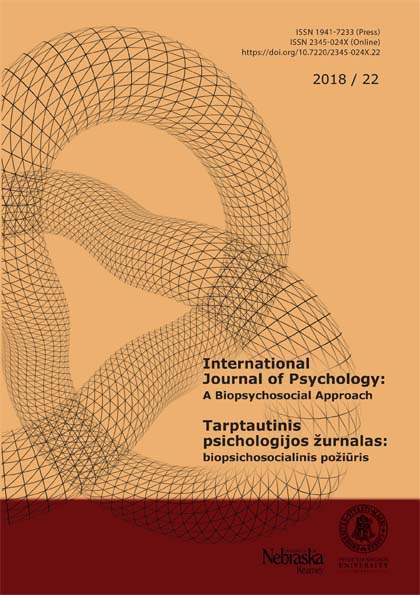The Relationship between the Vocational Teachers’ Personality Traits and the Work Motivation
The Relationship between the Vocational Teachers’ Personality Traits and the Work Motivation
Author(s): Kristina Kovalčikienė, Giedrė Genevičiūtė-JanonėSubject(s): Sociology, Vocational Education, Personality Psychology, Management and complex organizations
Published by: Vytauto Didžiojo Universitetas
Keywords: Vocational teacher; Personality traits; Work motivation; Clusters;
Summary/Abstract: Nowadays, as a means of supplying the market with a highly qualified workforce, vocational teachers play a significant role in Lithuania’s educational system. It is assumed that the most important factor determining the quality of education is the teacher. Undoubtedly, the vocational teacher’s personality traits and their work motivation are considered to be important components of a successful educational process. Aim: this study was carried out in order to detect the relationship between the vocational teachers’ personality traits and their work motivation. Method: The personality traits were evaluated using the Big Five Inventory (BFI; John et al., 1991, 2008) while the work motivation was assessed by employment of the Multidimensional Work Motivation Scale (MWMS; Gagne et al., 2015). 364 teachers from various Lithuania’s vocational schools participated in the research (243 of them were women, 93 men, while 10 did not specify their gender). Results: The study revealed that a greater expression of neuroticism correlated with an increase of the teachers’ motivation (p < .01), extrinsic (social and material) regulation (p < .01) and introjected regulation (p < .05), although the identified regulation (p < .05) and intrinsic motivation (p < .01) were observed to decrease. Meanwhile, with the increase of the teachers’ expression of extraversion, agreeableness and conscientiousness, intrinsic motivation (p < .01) and identified regulation (p < .01) heightened, and the extrinsic (material) motivation decreased (in case of extraversion and agreeableness – p < .01, in case of conscientiousness and openness to experience – p < .05). Moreover, the differences of work motivation noticed among various personality profiles were added to the results of the research. In comparison to the teachers with low levels of neuroticism, the teachers with higher neuroticism levels were more likely to experience extrinsic (material) regulation (p < .001) and amotivation (p < .001). While the teachers with the lower level of neuroticism were noticed to be more prone to stronger and identified regulation (p < .001) and introjected regulation (p < .001) than the teachers with higher neuroticism levels. The results of the study could be useful in the professional counselling and guidance process and in order to effectively motivate vocational teachers with peculiar personality traits.
Journal: Tarptautinis psichologijos žurnalas: biopsichosocialinis požiūris
- Issue Year: 2018
- Issue No: 22
- Page Range: 135-159
- Page Count: 25
- Language: English

